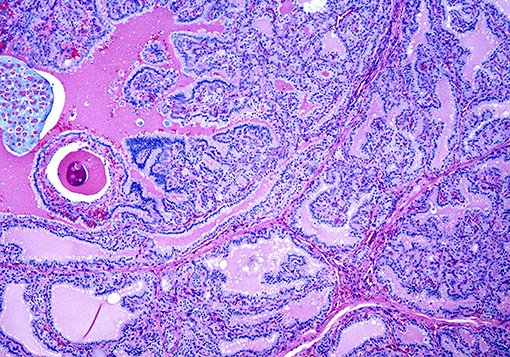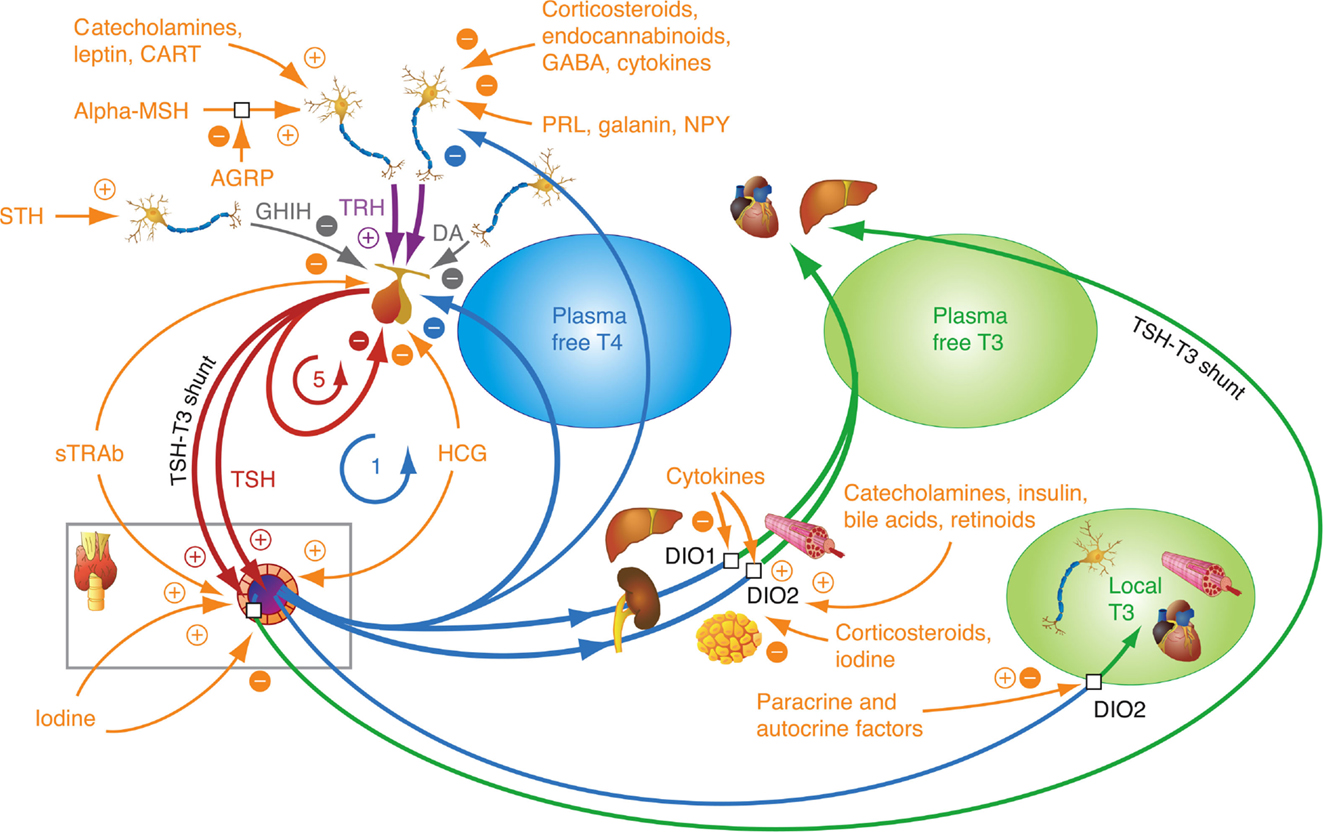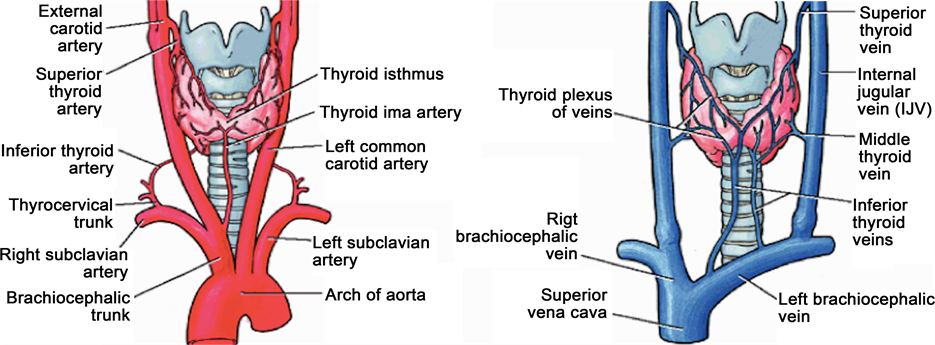An overactive thyroid gland, also known as hyperthyroidism, occurs when the thyroid produces excessive amounts of thyroid hormones. This condition can significantly impact the body’s metabolism and lead to a variety of symptoms. The thyroid gland plays a crucial role in regulating energy levels, heart rate, and overall bodily functions. When it becomes overactive, it can disrupt these processes, leading to health complications. In this article, we will explore the symptoms, methods of diagnosis, and available treatments for an overactive thyroid gland.


Understanding the Thyroid Gland and Its Functions
The thyroid gland is a small, butterfly-shaped organ located at the base of the neck. It is responsible for producing hormones that regulate the body’s metabolism, which is the process by which the body converts food into energy. These hormones, primarily thyroxine and triiodothyronine, influence how quickly the body burns calories and how fast the heart beats. When the thyroid gland becomes overactive, it releases too much of these hormones, causing the body’s systems to speed up.
Common Causes of Hyperthyroidism
- Graves’ Disease: This is the most common cause of an overactive thyroid gland. It is an autoimmune disorder where the immune system mistakenly attacks the thyroid, causing it to produce excess hormones.
- Toxic Nodular Goiter: This condition involves the growth of lumps or nodules on the thyroid gland, which can lead to excessive hormone production.
- Thyroiditis: Inflammation of the thyroid gland can cause stored hormones to leak into the bloodstream, leading to temporary hyperthyroidism.
- Excessive Iodine Intake: Consuming too much iodine, often through medications or supplements, can stimulate the thyroid to produce more hormones than necessary.
Symptoms of an Overactive Thyroid Gland
The symptoms of an overactive thyroid gland can vary depending on the severity of the condition and the individual’s overall health. Some people may experience mild symptoms, while others may face more severe effects. Below are the most common signs and symptoms associated with hyperthyroidism:
Physical Symptoms
- Unintended Weight Loss: Despite having a normal or increased appetite, individuals may notice significant weight loss due to the accelerated metabolism.
- Rapid Heartbeat: An elevated heart rate, also known as tachycardia, is a frequent symptom. Some people may also experience palpitations or irregular heartbeats.
- Increase in Appetite: The body’s heightened metabolic state can lead to an increased desire for food.
- Nervousness and Irritability: Excess thyroid hormones can affect the nervous system, leading to feelings of anxiety, restlessness, or irritability.
- Tremors: Fine tremors in the hands and fingers are common and can be noticeable during activities such as writing or holding objects.
Emotional and Cognitive Symptoms
- Mood Swings: Fluctuations in mood, including feelings of sadness or frustration, may occur.
- Difficulty Concentrating: Many individuals with an overactive thyroid find it challenging to focus or think clearly.
- Fatigue: Paradoxically, despite the body working harder, some people may feel unusually tired or weak.
Other Symptoms
- Heat Intolerance: People with hyperthyroidism often feel excessively warm or sweat more than usual, even in cooler environments.
- Frequent Bowel Movements: Digestive changes, such as diarrhea or more frequent bowel movements, can occur.
- Changes in Menstrual Patterns: Women may experience lighter or less frequent menstrual periods.
- Goiter: An enlarged thyroid gland may cause visible swelling at the base of the neck.
Diagnosing an Overactive Thyroid Gland
Diagnosing hyperthyroidism typically involves a combination of physical examinations, blood tests, and imaging studies. Early detection is crucial to prevent complications and manage symptoms effectively.
Physical Examination
A healthcare provider will begin by conducting a thorough physical examination. They may check for signs such as an enlarged thyroid gland, rapid heartbeat, tremors, or changes in skin texture. The doctor will also review the patient’s medical history and inquire about any symptoms they have been experiencing.
Blood Tests
Blood tests are essential for confirming a diagnosis of hyperthyroidism. These tests measure the levels of thyroid hormones and thyroid-stimulating hormone (TSH) in the blood. Key tests include:
- Thyroid-Stimulating Hormone Test: Low levels of TSH indicate an overactive thyroid, as the body reduces TSH production when thyroid hormone levels are high.
- Thyroxine and Triiodothyronine Tests: Elevated levels of these hormones confirm hyperthyroidism.
- Thyroid Antibody Tests: These tests help identify autoimmune conditions like Graves’ disease by detecting specific antibodies in the blood.
Imaging Studies
In some cases, imaging studies may be necessary to evaluate the structure and function of the thyroid gland. Common imaging techniques include:
- Ultrasound: This non-invasive test uses sound waves to create images of the thyroid gland, helping to identify nodules or abnormalities.
- Radiotracer Imaging: A small amount of radioactive iodine is administered, and its uptake by the thyroid is measured. This test helps determine whether the entire gland or specific areas are overactive.
Treatment Options for Hyperthyroidism
Treatment for an overactive thyroid gland aims to reduce hormone production, alleviate symptoms, and prevent long-term complications. The choice of treatment depends on factors such as the underlying cause, the severity of symptoms, and the patient’s overall health. Below are the most common treatment options:
Antithyroid Medications
Medications that inhibit the production of thyroid hormones are often the first line of treatment. These drugs work by interfering with the thyroid’s ability to use iodine, a key component in hormone synthesis. Common antithyroid medications include:
- Methimazole: This medication is widely used due to its effectiveness and ease of administration.
- Propylthiouracil: Often prescribed during pregnancy, as it poses fewer risks to the developing fetus compared to other options.
While these medications can effectively control symptoms, they may take several weeks to show results. Long-term use may also be necessary to maintain normal hormone levels.
Radioactive Iodine Therapy
This treatment involves taking a capsule or liquid containing radioactive iodine. The thyroid absorbs the iodine, which gradually destroys overactive thyroid cells. Over time, this leads to a reduction in hormone production. Radioactive iodine therapy is highly effective and considered safe, but it may result in hypothyroidism, requiring lifelong hormone replacement therapy.
Thyroid Surgery
In cases where medications and radioactive iodine are not suitable, surgery to remove part or all of the thyroid gland may be recommended. This procedure, known as a thyroidectomy, is typically performed under general anesthesia. While effective, surgery carries risks such as damage to nearby structures, including the vocal cords and parathyroid glands.
Beta-Blockers
Beta-blockers do not directly address the overproduction of thyroid hormones but are often prescribed to manage symptoms such as rapid heartbeat, tremors, and anxiety. These medications work by blocking the effects of adrenaline, providing relief until other treatments take effect.
Lifestyle Modifications
In addition to medical treatments, certain lifestyle changes can help manage symptoms and improve overall well-being:
- Dietary Adjustments: Avoiding foods high in iodine, such as seaweed and iodized salt, may be beneficial for some individuals.
- Stress Management: Techniques such as yoga, meditation, and deep breathing exercises can help reduce stress and alleviate symptoms like anxiety and irritability.
- Regular Exercise: Moderate physical activity can improve energy levels and support cardiovascular health.
Potential Complications of Untreated Hyperthyroidism
If left untreated, hyperthyroidism can lead to serious health complications. These include:
- Osteoporosis: Excess thyroid hormones can weaken bones, increasing the risk of fractures.
- Heart Problems: Prolonged rapid heartbeat or irregular heart rhythms can lead to heart failure or stroke.
- Thyroid Storm: This rare but life-threatening condition involves a sudden and extreme surge in thyroid hormone levels, requiring immediate medical attention.
Conclusion
Hyperthyroidism is a manageable condition with a range of treatment options available. By understanding the symptoms, seeking timely diagnosis, and adhering to prescribed treatments, individuals can effectively control their condition and maintain a high quality of life.





